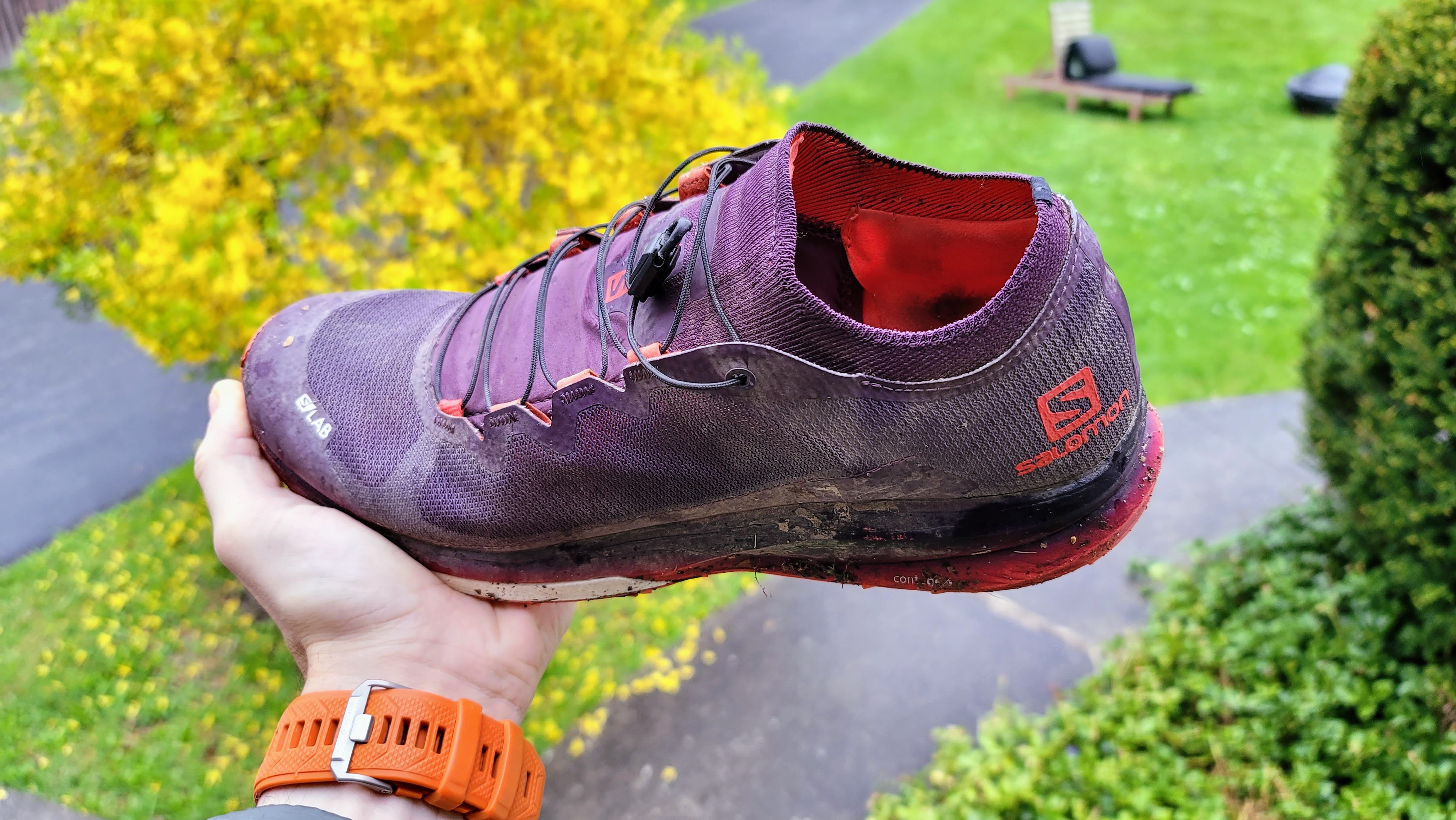Tom's Guide Verdict
The Salomon S/Lab Ultra 3 trail running shoes are perfect for long-distance backcountry bouts, no matter the terrain. They’re expensive, but worth it in the long haul.
Pros
- +
Instantly comfortable fit
- +
Just-right cushioning at the heel
- +
Inner sock reduces friction
- +
Mountain goat grip and stability
- +
Excellent lacing system
Cons
- -
Premium price point
- -
Only one color choice
- -
Not all runners will love the lack of cushioning
Why you can trust Tom's Guide
The Salomon S/Lab Ultra 3 trail-running shoes were built from the ground up for longer distances, and ultra runners will appreciate the latest design choices. Long-story-short: these shoes provide an ideal balance of comfort, cushioning, and Spider-man-like grip — no matter how technical the terrain may become.
Price: $180
Drop: 8mm
Weight: 20.4oz / 290g (men’s US 10.5)
Type: Trail running
Colors: One (Maverick/Racing Red)
Widths: Regular
As the third generation of this popular shoe, the S/Lab Ultra 3 shoes offer more protection than any other Salomon shoes on our shortlist, and the reimagined upper is similar to what you’ll find in the company’s S/Lab Sense line. In our Salomon S/Lab Ultra 3 review, we put in over 100 miles of testing to try out their improved feature set. Are these the best trail-running shoes on the market? Read on to find out.
Salomon S/Lab Ultra 3 Review: Price and availability
Released in late 2020, the Salomon S/Lab Ultra 3 is available for £170/$180 from the company’s website. That's a pretty penny for trail-running shoes, so if you ever spot them on sale in the near future, you might want to jump on it.
The S/Lab Ultra 3 only comes in one color scheme: Maverick/Racing Red. These shoes are unisex, too, available in sizes US 4-13 (UK 3.5-12.5) for men, and sizes US 5-14 (UK 3-12) for women.

Salomon S/Lab Ultra 3 Review: Design and fit
In my research for this review, runners who got the chance to test the S/Lab Ultra 2 shoes side-by-side against the S/Lab Ultra 3 shoes reported a more secure fit in the latter, particularly around the midfoot, top of the foot, and heel. The basic size and shape remains mostly unchanged from the last model, though at 20.4 ounces, the S/Lab Ultra 3 is slightly lighter than the S/Lab Ultra 2 (22.6 ounces). It only comes in regular width, so runners with extra-wide or extra-narrow feet may want to look elsewhere.
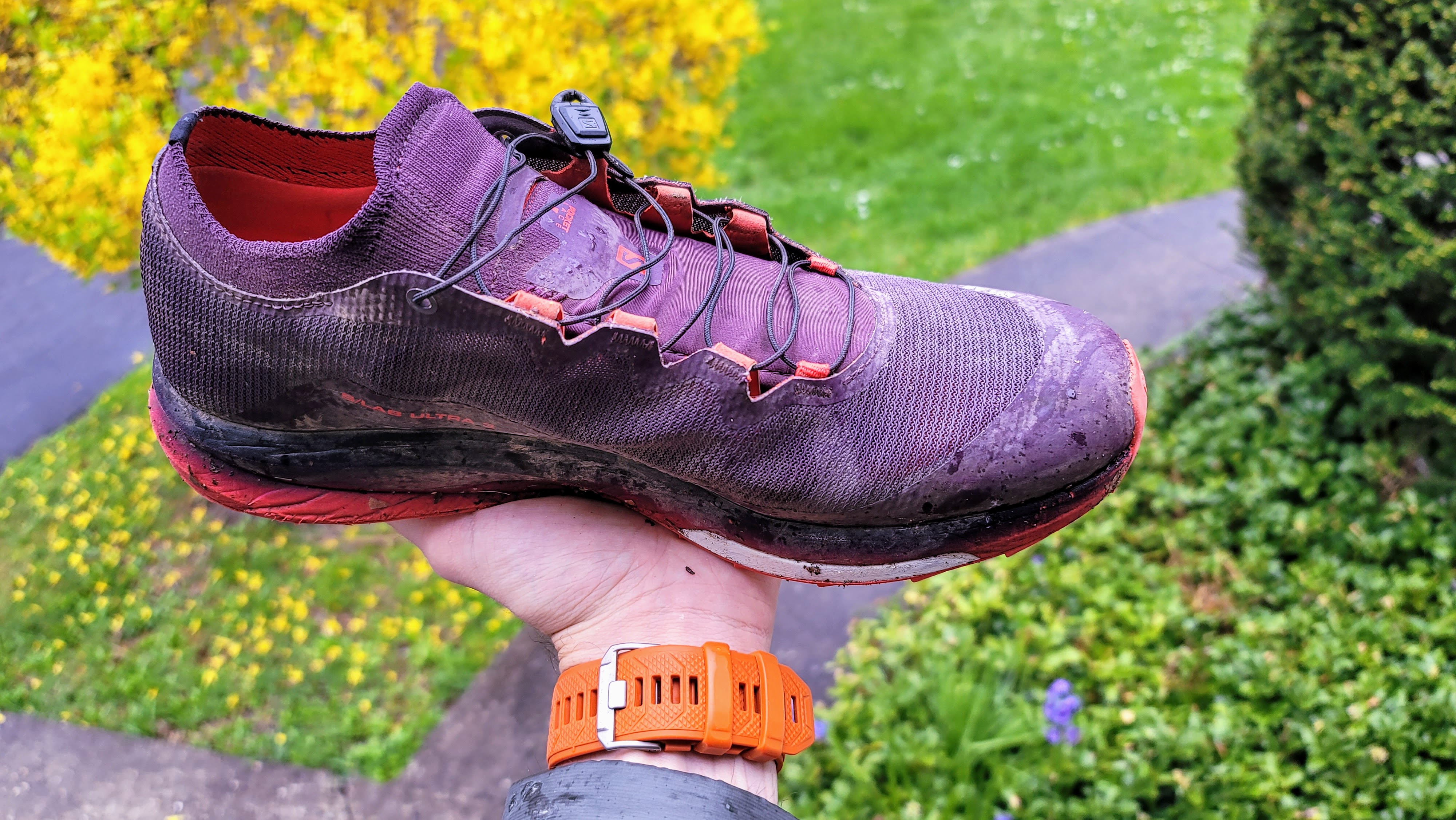
Upper
The newer Ultra 3 shoes have an entirely redesigned upper that’s made of anti-debris mesh. This creates an integrated gaiter all the way around your ankle to keep out debris — which was an issue for previous generations. (The newer shoes also have a higher ankle collar.) There’s plenty of ventilation up top, and the outer materials are water-resistant, too. Since these are meant for mixed terrain, it’s nice to see the attention to detail here.
You won’t find a traditional tongue on these shoes. Instead, that 360-degree stretchy mesh works in conjunction with the Quicklace system, which is a literal cinch to tighten or loosen at will. In my testing, the S/Lab Ultra 3 slips on like a clunky sock, and you can tuck the extra lacing into a hidden pocket once you’ve adjusted everything to your liking.
During my first few test runs, I couldn’t help but notice the extra pressure this inner mesh created on the top of my foot. Once I switched from ankle socks to quarter socks, however, this essentially solved the issue, since it created better pressure distribution throughout my ankle area.
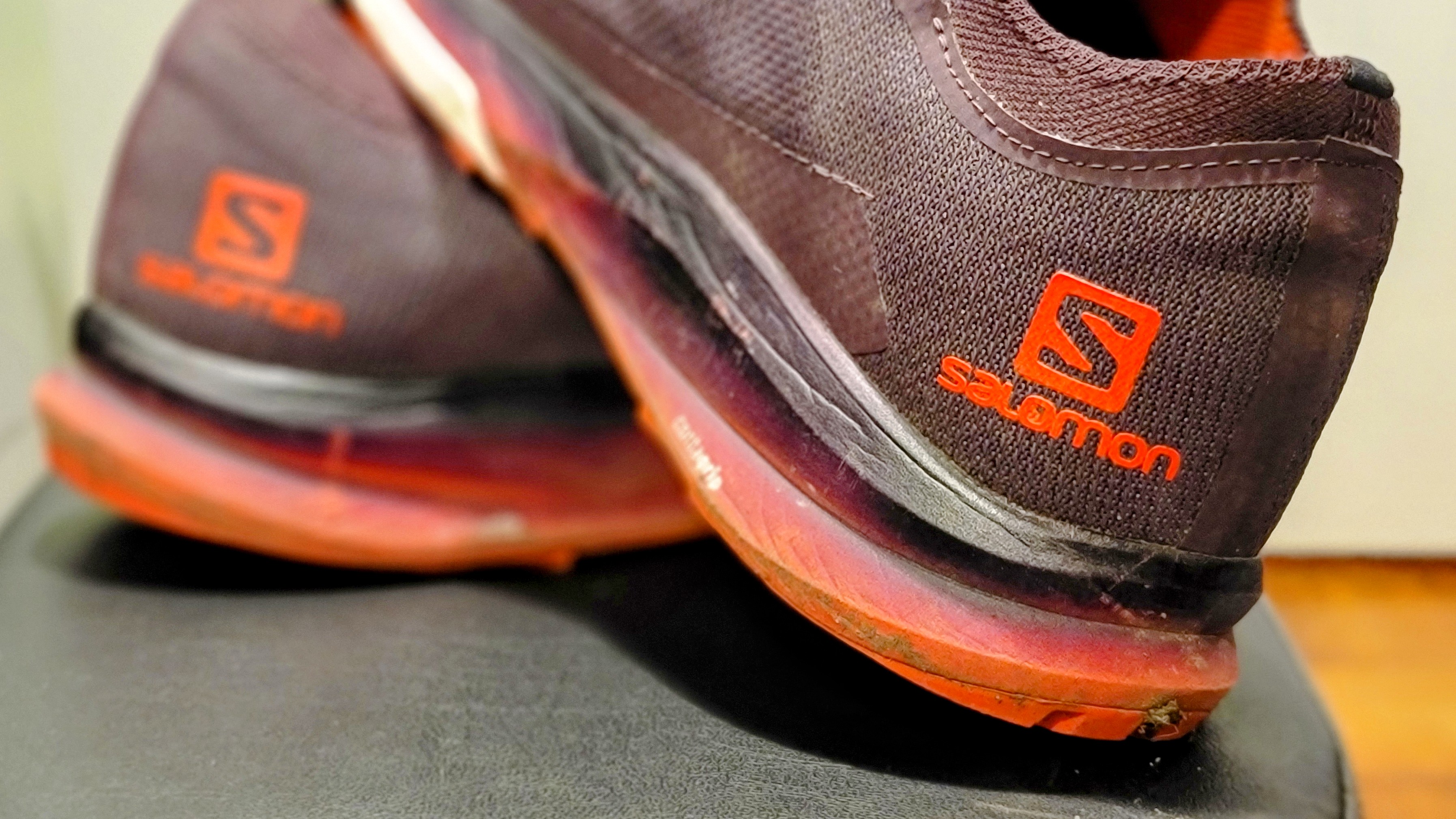
Midsole
Salomon’s “high-rebound” midsole is made for high-energy returns when you hit the trail, coupled with cushioned protection from sharp objects that might find their way underfoot. The end result? Top-notch shock absorption that allows you to zip along at top speed without hurting your feet on more technical terrain. It’s not as spongy as EVA foam, but it still provides superior protection for longer treks and trails, especially in terms of overall stability. (More on that below.)
Note: If you’re looking for something a bit more minimalist, the S/Lab Sense 8 is even more lightweight, but still offers many of the same features.
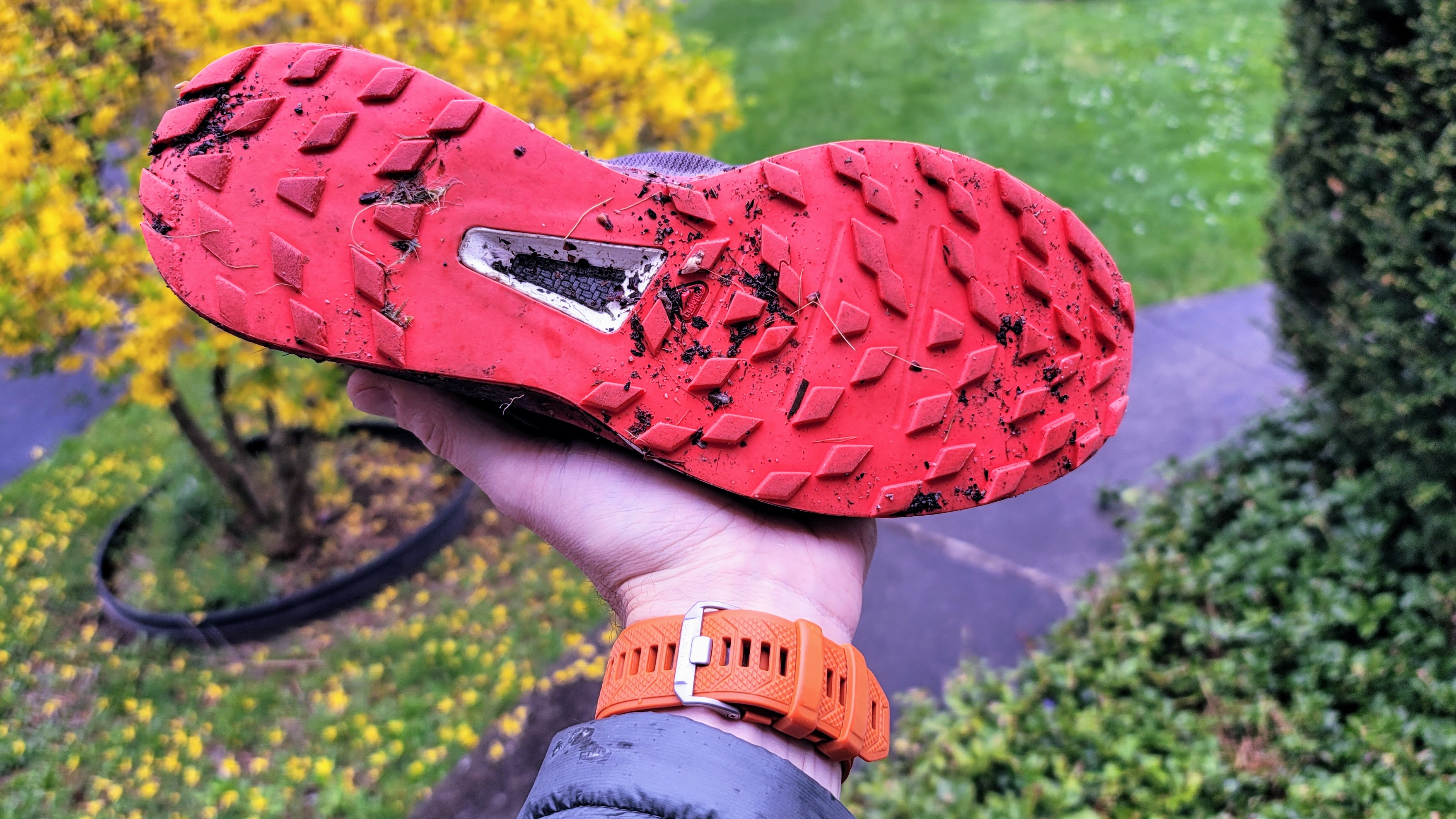
Outsole
The outsole hasn’t changed much from previous generations of the S/Lab Ultra 3, with diamond-shaped lugs scattered across the bottom. My old Saucony Xodus kicks (circa 2019) used to make me feel like a mountain goat during any rock scramble, but the S/Lab Ultra 3’s outsole feels even stickier, especially on softer surfaces like packed dirt.
Salomon S/Lab Ultra 3 Review: Performance
To put the Salomon S/Lab Ultra 3 trail-running shoes through their – ahem – paces, I ran roughly 100 miles in them, which included a 42K trail marathon in the Catskills. My 14-week training for this race included interval runs (2 to 5 miles), distance runs (5 to 20 miles), recovery runs/walks (1 to 3 miles), and just zipping around New York City for my weekly commutes.
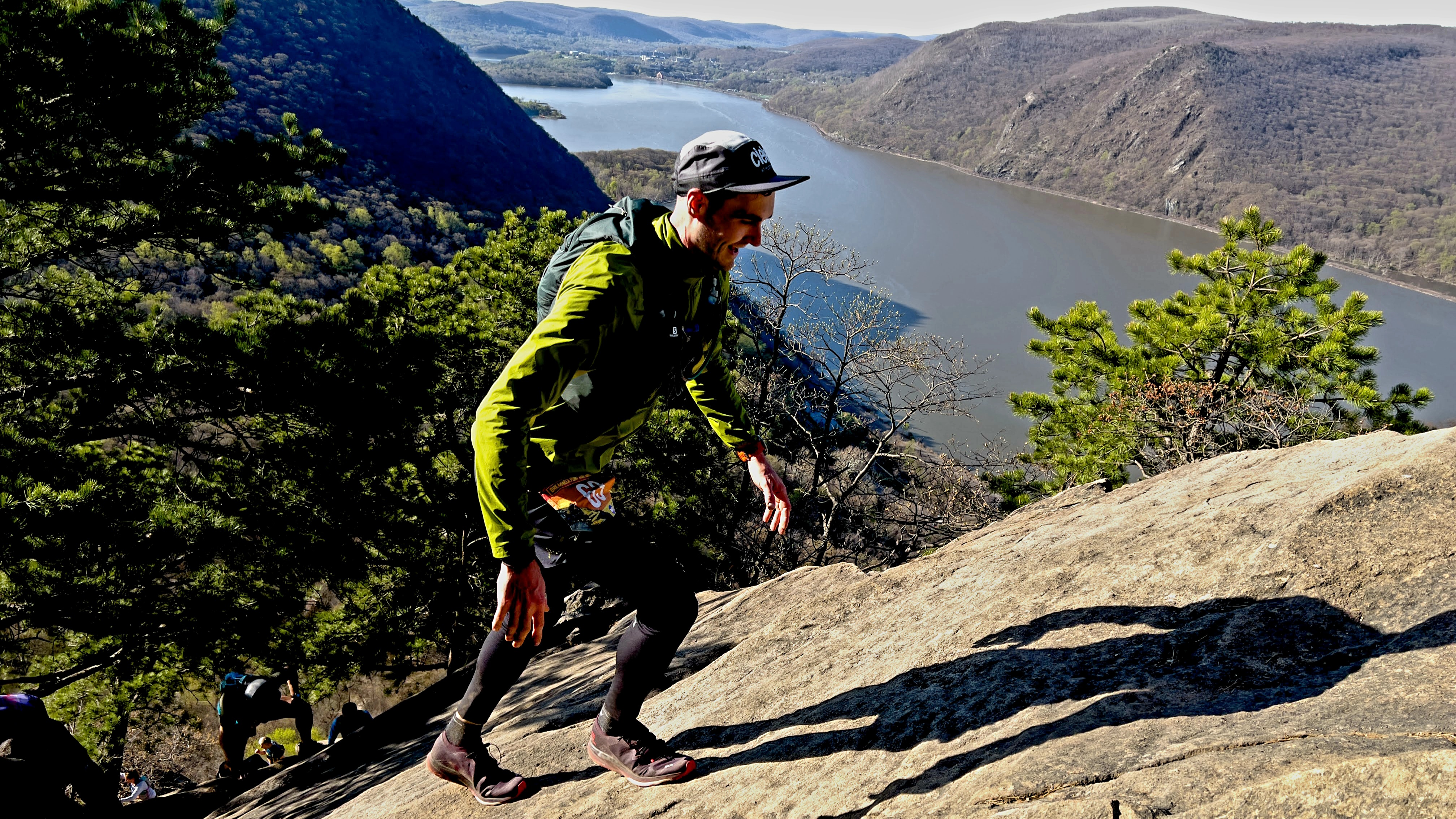
Much to my pleasant surprise, the S/Lab Ultra 3 shoes were comfortable from the moment I slipped them on. The stretchable mesh instantly conformed to my ankle area in all the best ways; the shoes neither felt too wide nor too narrow. Once I cinched up the lacing, my feet may as well have been part of the shoes themselves. Plus, on the rare occasion that I had to remove a shoe mid-run to shake out a pebble, it only took a few seconds to do so.
While the midsole of my old 9.2-ounce Saucony Xodus shoes are way clunkier, each S/Lab Ultra 3 shoe is a full 3 ounces lighter, and I could absolutely feel the difference on the trail, especially for faster sessions. (My previous favorites for fast runs were the Under Armour Flow Velociti Wind shoes, which only weigh 5.2 ounces each.) Out of the three, however, I’d say the S/Lab Ultra 3 shoes provided the best mix of lightweight cushioning when I jogged around the outer trails of Prospect Park.
As I mentioned before, that built-in gaiter put some borderline-uncomfortable pressure at the base of my ankle during those first few runs, but switching from ankle socks to quarter socks solved the problem. It’s not a deal-breaker, but a few other reviewers had this issue, too. I never experienced any heel-slippage of any kind, nor did I ever develop any blisters or hot spots during any of my workouts. Pretty impressive, since my longest nonstop run in these shoes was 27.4 miles total. (With completely dry feet, but still.)
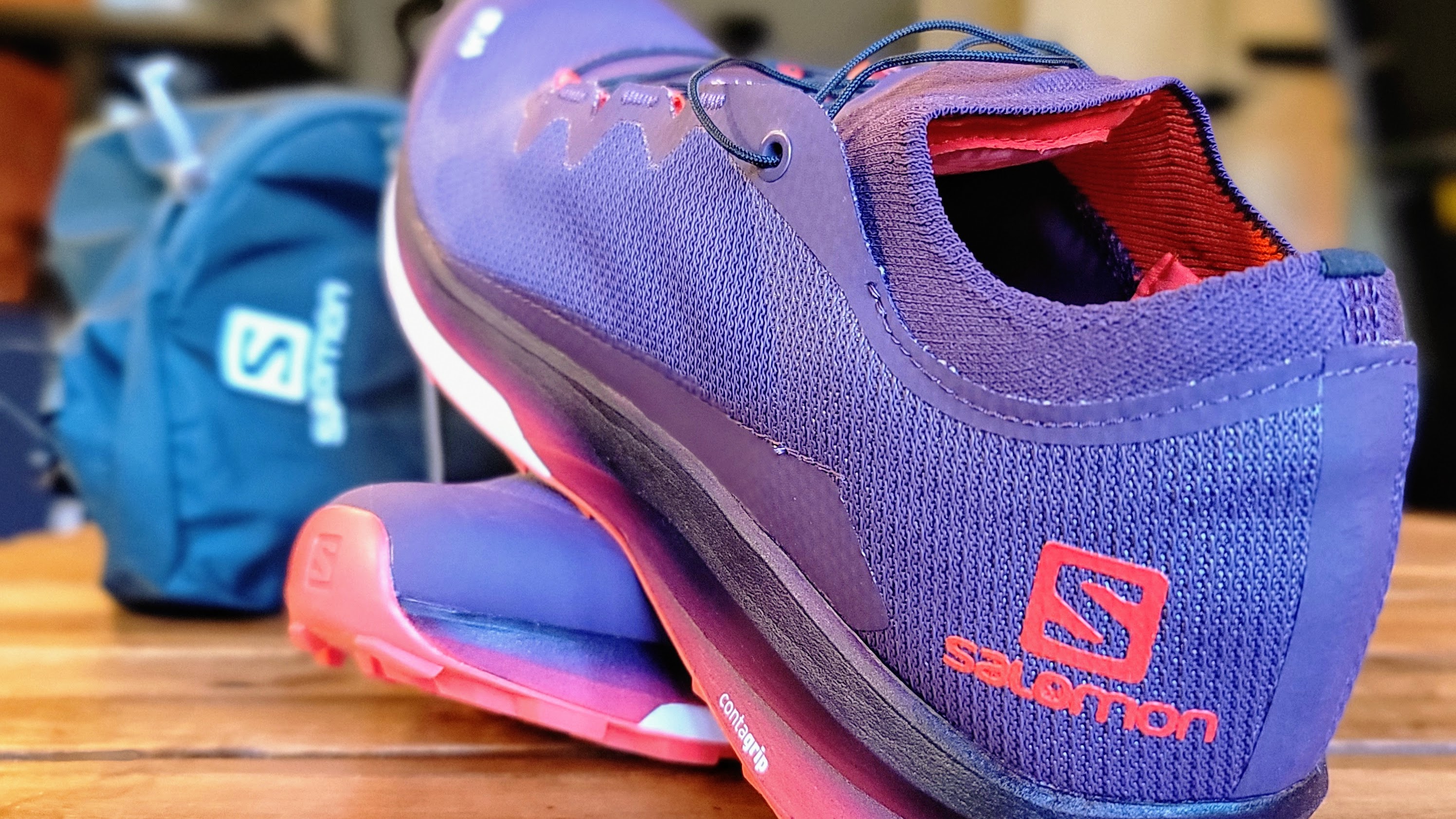
No matter what surface I was running on (eg, stone, gravel, concrete, packed dirt, mud) the stability I experienced during every run was unparalleled; the cushioning below the ankle is ample, yet exceedingly firm. This was especially important during my trail marathon, which included over 9,000 feet of elevation gain. I was running up and down a lot of steep, rocky terrain throughout the entire course, and the stakes were pretty high for anyone who took an accidental tumble.
I also spent a lot of time running across small, jagged rocks during the race, but the bottom of my feet felt fully protected no matter what. (The toe bumper helped here, too.) The outsole’s Contagrip traction didn’t disappoint, allowing me to hop from rock to rock with minimal slippage — whenever I crossed a creek, for example — without ever slowing down too much. By the time I hit mile 100 in my testing, though, the rubber lugs near the heel area were already wearing down.
Salomon S/Lab Ultra 3 Review: Verdict
I’ve always been a fan of minimalist footwear, but it takes the proper balance of cushioning and stability to support my lanky limbs on longer runs. The Salomon S/Lab Ultra 3 trail-running shoes check off all the right boxes in this regard, with a bare-bones upper that pairs perfectly with the ergonomic comfort and stability of an excellent midsole/outsole combo.
If you’re looking for a good road-to-trail shoe, check out our top picks for the best trail-running shoes, which includes the Nike Pegasus Trail 3. These kickers are great for lighter trail runs, and you’ll bounce right over any rocky terrain you encounter.
The Salomon S/Lab Ultra 3 shoes are definitely on the expensive side, but if ultra running is in your future, they might be worth the investment. In short, these are the best running shoes I’ve tested to date, and you can’t do much better in terms of overall comfort, stability, and traction.

As a freelance journalist, TJ has over a decade of multi-medium storytelling under his belt. Leveraging a quarter century of collective coddiwompling amid the ever-evolving landscape of wireless gadgetry, his unique editorial background allows him to explore a variety of tech-centric subsectors on this fascinating planet. When he's not field testing new gear in the Catskills, Adirondacks, or an actual field, he can be found sipping Negronis in his living room and crafting Dr. Seussian poetry inside a tattered moleskin.
